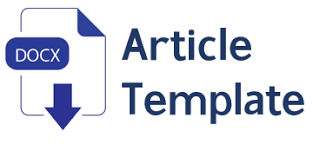Reconstructing The Interpretation of Conspiracy in The Prosecution of Corruption Crimes to Achieve Legal Certainty
Keywords:
reconstruction;, evil conspiracy, criminal acts of corruptionAbstract
This study aims to examine and analyze the synchronization of the meaning of evil conspiracies in corruption crimes, as well as find a reconstruction of the meaning of evil conspiracies in the punishment of corruption crimes to realize legal certainty. The research method used is normative juridical with an analytical approach research approach, with a specification of analytical descriptions that describe generally accepted laws and regulations associated with legal theories and principles and implementation practices. Using the Grand Theory, Middle Range Theory, and Applied Theory in exploring and analyzing to find answers to research problems. The results showed that the implementation of the meaning of evil conspiracies in corruption was formulated differently between the Criminal Code and the Tipikor Law. In the case of corruption, evil conspiracies cannot be imposed the same criminal sanctions as perpetrators of corruption who have finished committing their crimes as stipulated in Article 2, Article 3, Article 5 to Article 14 of the Tipikor Law. Referring to the elements of Article 88 of the Criminal Code, in the event that the intention to commit a crime or agreement is not necessarily carried out in the form of concrete acts, then in an evil agreement there is only an intention by holding an evil consensus, there is absolutely no act of implementation. This has an impact on legal uncertainty in the basis for prosecuting perpetrators of corruption crimes because juridically there is no firm regulation. The reconstruction of the meaning of evil conspiracies in the punishment of criminal acts is that evil conspiracies are considered as stand-alone offenses, meaning that people who have committed evil conspiracies are considered to have committed criminal acts. Criminal law policy in combating corruption is explicitly stated by the qualification of offenses, as well as providing juridical understanding or limitations regarding evil conspiracies and then equating the perception of criminal policy between the Criminal Code and the Tipikor Law. This is in accordance with the principle of legality which requires that criminal law be determined in advance through laws and regulations and is detailed and careful. As for the researcher's suggestion, namely to the Government and the DPR, it is necessary to issue a special regulation containing guidelines for the implementation of the provisions of malicious consensus offenses. The guideline contains an explanation of the meaning of evil conspiracy, its elements, categories of criminal acts that can be punished with evil conspiracy, to simulated cases related to evil conspiracy's offenses
Published
Issue
Section
Copyright (c) 2023 Denny Siregar, Muhammad Mustofa, Lilik Mulyadi

This work is licensed under a Creative Commons Attribution-ShareAlike 4.0 International License.
Authors who publish with this journal agree to the following terms:
- Authors retain copyright and grant the journal right of first publication with the work simultaneously licensed under a Creative Commons Attribution-ShareAlike 4.0 International. that allows others to share the work with an acknowledgment of the work's authorship and initial publication in this journal.
- Authors are able to enter into separate, additional contractual arrangements for the non-exclusive distribution of the journal's published version of the work (e.g., post it to an institutional repository or publish it in a book), with an acknowledgment of its initial publication in this journal.
- Authors are permitted and encouraged to post their work online (e.g., in institutional repositories or on their website) prior to and during the submission process, as it can lead to productive exchanges, as well as earlier and greater citation of published work.




